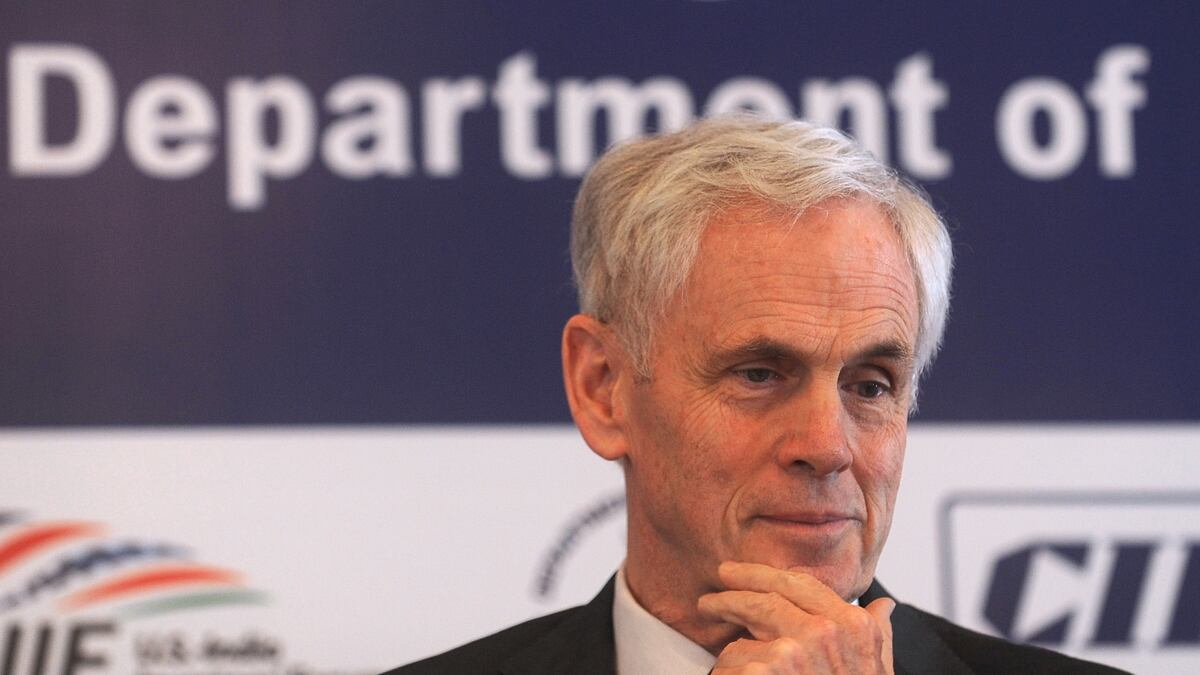President William Henry Harrison, the history books will tell you, wasn't president for long at all. After his inauguration in March 1841, Harrison delivered the longest Inaugural Address in American history for nearly two hours, all while wearing neither a coat nor hat in bad weather. Struck by pneumonia, he died just over a month later.
More than 170 years later, another short tenure will be recorded in U.S. history textbooks. John Bryson, the nation's 37th secretary of commerce, delivered his resignation to the White House on Wednesday night, just eight months after taking office, and several weeks after being involved in two car accidents believed to have been caused by a seizure and other medical impediments. The circumstances of Harrison and Bryson certainly differ, but history may well treat both men the same—a footnote in the long arc of the republic's storied history.
Bryson wasn't Obama's first choice to lead the Commerce Department. That fell to Gary Locke, the former Washington state governor, fluent in Chinese, who was promoted to be the ambassador to China after the job's former occupant, John Huntsman, left the post to vie for President Obama's job. But with the position open last fall, Obama saw a key ally in Bryson, who was a former corporate executive with Edison International and Boeing, and who could potentially bridge widening divides between the Obama administration and the sharp-elbowed Chamber of Commerce.
During his tenure, Bryson helped the White House craft a workable policy to revive manufacturing, a sector that had seen promising gains in 2011 but was still the most likely area for continued growth. Unwilling to sit for long interviews, Bryson kept a low profile. His main task, according to the White House at the time of his appointment, was to promote Obama's plan to double U.S. exports by 2015.
With long-term deadlines and lots of unfinished work, Bryson leaves a short legacy with his colleagues at Commerce. Agency officials usually work best with a chief who has longevity and institutional credibility, but Bryson had time to shore up neither.

By pure coincidence, on the same day Bryson's resignation became public, Congress prepared to discuss an issue that left a black eye on his agency. The National Weather Service, an autonomous agency that operates under Commerce, had been found by a government investigator to have misappropriated more than $43 million in federal funds, directing them toward programs and contracts that hadn't been authorized by Congress. After the NWS's chief resigned last month, the House Appropriations Committee decided to hold a hearing to hold the agency, and top Commerce officials, accountable.
On the other end of Pennsylvania Avenue, President Obama welcomed Bryson into the Oval Office on Thursday to bid him farewell after his short tenure, thanking him for the time he did serve and the work he did on behalf of the administration. In a statement, Obama said that Bryson had fought "tirelessly for our nation's businesses and workers."
Taking over the top job at Commerce now will be Rebecca Blank, the former deputy secretary who took over duties last month after Bryson's accident. A longtime policy analyst and economist, Blank appears well positioned to retain a full-time appointment once Obama decides who to formally nominate for the full time role. Blank—as well as Obama, who faces reelection in November—would probably like the appointment to be longer than eight months.





